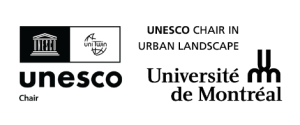
Since 2019, the FRQ have been providing financial support for UNESCO Chairs under a joint Declaration of Intent signed with the Canadian Commission for UNESCO (CCUNESCO). Here is a portrait of one of these Chairs, whose work is generating positive impacts for society.

UNESCO Chair in Urban Landscape
Chairholder: Shin Koseki, School of Urban Planning and Landscape Architecture, Université de Montréal
In 2023, some fifteen students from the Université de Montréal joined about thirty colleagues from other countries in Hanoi, Vietnam as part of the Fluvialities project led by the UNESCO Chair in Urban Landscape.
The project aims to bring scientific knowledge from a number of disciplines together with citizen knowledge in order to foster development that promotes ecosystem integrity and viability. This is an important issue, particularly for Montréal, which is located on the most densely populated river island in the world.
One of the aims of the initiative is to create a research network including academics, non-profit organizations, riverside communities and businesses. Begun in 2021, it will continue this year in Phnom Penh, Cambodia.
The project is directly in line with the mission of this UNESCO Chair, which strives to respond to the challenges faced by local communities in relation to the preservation, value enhancement and development of urban landscapes. The Chair’s work focuses on three areas: sustainable development, social inclusion and the governance of new technologies in urban environments.
Another of the Chair’s projects concerns the responsible development and implementation of artificial intelligence (AI) in urban environments. Cities often lack the expertise to do this properly. The development of such technologies also entails a number of risks, not least that of perpetuating biases harmful to minority groups.
The Chair’s members work with citizens, particularly from minority or marginalized groups. Together, they devise inclusive approaches for data production, as well as for training and testing of AI models.
The Chair is convinced that the success of cities lies in their ability to articulate knowledge from different fields, helping them to create welcoming, inclusive and dynamic public spaces.
